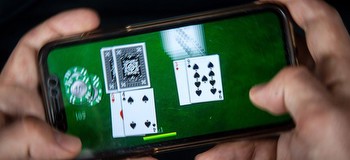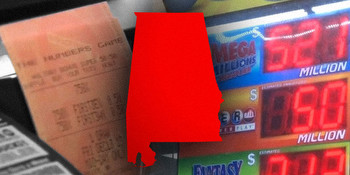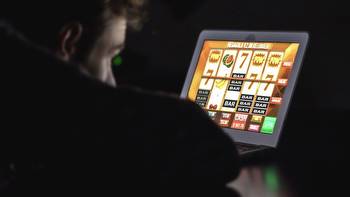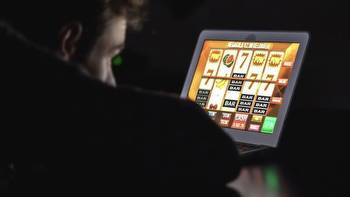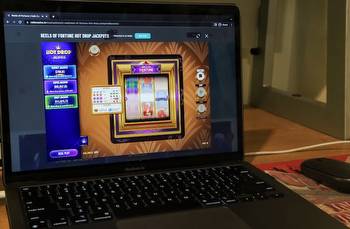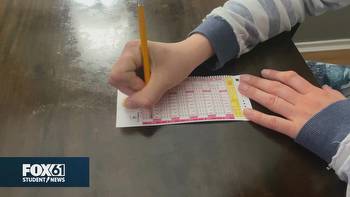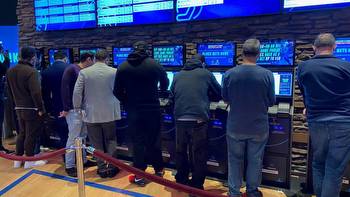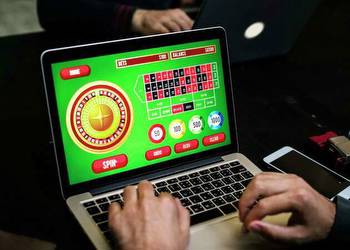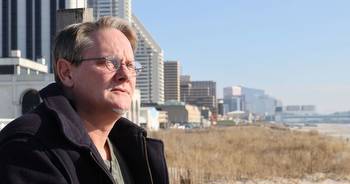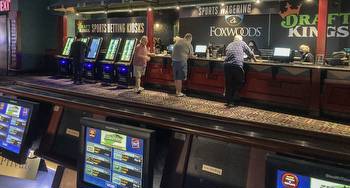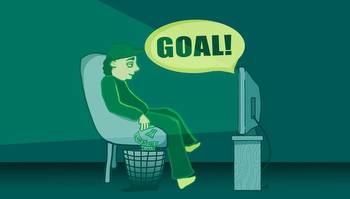CT experts warn online gambling addictions will worsen at colleges

When Brian Dolan was a student at Sacred Heart University, he struggled with a serious gambling addiction. If he wanted to place bets, he would have to find a bookie by going to bars or barber shops.
"It's extremely serious," he said. "It's very difficult to observe because, unlike drugs and alcohol where you have a symptom, the gambling can just look like 12 guys watching a football game."
Dolan, Director of Sacred Heart University's Collegiate Recovery Program, said he is in long-term recovery for addiction to alcohol, drugs and problem gambling. He said the program is one that provides a safe and accountable space for students in recovery, as the college atmosphere is so tied to drugs and alcohol.
That has always been true, Dolan said, but as gambling has become more accessible, he is getting called more regularly by parents in this part of the country who say their children have a gambling problem.
"I'll get a lot of calls from, not so much Sacred Heart students, but in the Northeast, where it's like 'I sent my son away to college and he had our credit card and lost $10,000. What do we do?'" he said. "It moves very fast. Universities' leadership across the board don't know how prevalent it is. It is probably the most hidden addiction-based issue."
Experts from across the state agree. Jumana Grassi, a psychotherapist specialized in addiction who works with people in Connecticut and New York, said people are more susceptible to getting addicting to things before the age of 25. She said people in college have a number of factors that feed into that.
"Some of being away from home. Some of it is distraction from whatever issues are going on in your life," she said. "Your frontal cortex isn't quite developed yet. Really 14 and up are the ages of where you're unaware of consequences. It's often young men."
Declan Hill, an associate professor of investigations at the University of New Haven, said gambling addictions among professional and college athletes is a "silent, persistent plague." He said so many sports leagues have embraced betting, when it's the very behavior athletes should avoid.
"Studies show that the rates of pathological or problem gambling are close to eight times higher for NCAA athletes compared to the regular population," he said. "Everything that makes an athlete good at sports — complete focus, obsession, capacity to overturn odds, to never give up — makes them absolutely lousy gamblers."
While none of the people interviewed by Heart Connecticut Media think that gambling should be made illegal, they all felt the public needs to be aware of the risks that come with more access to it.
Diana Goode, the executive director of the Connecticut Council on Problem Gambling, said her organization is not trying to stop people from gambling, they just want to make sure that there are more safeguards in place as it becomes easier to do.
"We used to say if you lived within 40 miles of a casino, your odds of becoming a problem gambler doubled," she said. "Now, everyone has a casino in their house."
College gambling addictions
Goode said gambling becomes a problem when people become preoccupied with it, when they are borrowing money they won't be able to pay back, are taking out loans or are dipping into accounts they shouldn't be.
"There's no drug test for this," she said.
Goode said a problem gambler used to look like a "little old lady at a slot machine," but now it's seriously impacting young men.
Mallory Schultz, the prevention and training coordinator at CCPG, said college students' brains are still developing and they are participating in more risky behaviors, while having new levels of independence. In the United States, she said, three out of four college students have gambled in the past year, and 10 percent of them have experienced problem gambling.
Schultz said CCPG has a mini-grant out to eight colleges in Connecticut, including Sacred Heart, and work with those schools to address problem gambling. She said universities are reporting seeing more problem gambling among their students, including sports betting, online casinos and scratch and lottery tickets.
Dolan said about 5 to 7 percent of the population just cannot gamble safely, which is similar to people dealing with other forms of addiction. He noted that people with gambling addictions have the highest percent of suicide compared to people struggling with other types of addictions.
"It's so hidden and people lose their family's money," he said. "I think colleges need to have more dialogues about it."
Dolan said gambling sped up his addictions to drugs and alcohol. After graduating college, he went on a streak where he made about $80,000 in two months, which allowed him to drink and do drug much more aggressively.
"I had so many people co-signing the behavior," he said. "What we see a lot at the university level is that it's hard to look at that because they have so many friends doing the same thing."
Another component of it, Dolan said, is that people are trying to become independent during college, and some delude themselves into thinking gambling is a quick way to financial independence.
College students are going to drink, gamble and do drugs, Dolan said, so it's important to have healthy conversations about those things and provide resources to people who need to stay away from that.
Grassi said the reward system in people's brains goes off when they're gambling online. She said people have a built-in forgetter that makes them move past a painful loss and keep trying to win.
"With gambling addictions, people's defense mechanisms are super strong, and they learn how to lock it away," he said. "They categorize it and they don't ask for help until they're way far gone."
Grassi said they had a college-aged client who lost $44 million dollars gambling. Noting he clearly came from a family with money, she said he was incredibly resistant to dealing with his addiction.
"It's so dark for people," she said.
Athletes and gambling
Dolan, who also specializes in match fixing and corruption in international sports, said people who play sports in high school are less likely to be doing it in college, but gambling provides a way for them to stay around that subculture.
"So you stop playing basketball," he said. "But, you start betting on basketball. You kind of keep that competitiveness. It keeps you in and around sports."
Hill said there's a long history of good athletes being bad gamblers, and it is consistently downplayed by bookmakers. Athletes are at danger, as are young males between the ages of 14 and 35.
The European Union and the United Kingdom legalized sports betting in the early 2000s, Hill said, and while there's more regulation on gambling there, it has not gone well.
"Fifteen years later, we're seeing this as a disaster," he said. "It's a slow motion disaster which has brought challenges to sport integrity. Which has brought tens of thousands of teenage gambling addicts in the U.K."
Hill said legal bookmakers in Europe, their equivalent of companies like FanDuel and DraftKings, were tracking problem gamblers and using their data to target advertisements to them. He said a study presented to the British House of Lords recently showed that 86 percent of bookmakers' profits came from 5 percent of their customers.
"Shorthand, that's chasing the addict," he said. "Many of the addicts are among athletes."
Dolan said gambling becoming more accessible came at the same time everyone has a dependence on their smart phones, creating a perfect storm.
Goode said there is a lot of focus on sports betting and the problems arising from it being legalized, but online casinos, which were also legalized, are more of an issue. The amount of spins people can do with a virtual slot machine, or the number of hands people can play on online blackjack, she said, is way more than in a typical casino.
Goode added people will be able to buy lottery tickets on their phones and computers next year with credit cards, which will also likely cause issues. She said there are a lot of similarities between gambling addictions and the opioid crisis, as advertisements will bait people in with free samples and claim there's no risk.
"Have we learned nothing? It's really sad," she said. "Legalized marijuana happened at the same time as legalized gambling online. But, if the cannabis industry said 'Hey, come on in for a free sample. It's risk free.' We'd be freaking out."
Unless people can see someone sitting at a casino and struggling, Grassi said, it is much harder to see gambling addictions. Everyone is on their phones constantly, she said, so it looks normal. She added it also combines that addiction with the screen time addiction.
"It's like smoking in that it's one of the most horrific addictions, and it's one of the easiest to fall into," she said. "Not everyone that smokes cigarettes become addicted, but most of them do. It's like a hi-jacking of the brain."
Hill also noted he used to have to find a bookie to gamble on sports, but now people have access to that in their pocket. He said people are just pushing buttons, and the numbers mean nothing to them.
"There's no stopping this," he said. "It's essentially alcoholics walking around with a bar in their pocket. They're never able to walk away from it. There's no human interactions to stop it."
Gambling is addictive, Hill said, and legalizing it is one of the greatest changes in American society since prohibition. Companies present it at best as a game of skill and logic, he said, and at worst as a fun activity.
"Bookmakers in North American have been allowed to present this addictive pastime as harmless fun," he said. "It's outrageous. You couldn't imagine a tobacco company being able to pass that off."
He said companies benefiting from legalized gambling should have to put more of their funding toward addiction treatment and the overall practice shouls be better regulated.
Dealing with it
Dolan said the infrastructure for treating drug and alcohol addictions could be better, but it is out there. Gambling, he said, is much more challenging to find treatment for.
"There's really only two in-patient treatment centers for gambling addictions in the whole country," he said. "But I could name you 50 in the state of Connecticut for drugs and alcohol."
Still, Dolan said, Sacred Heart will provide resources for students who need help.
First and foremost, he said, people need to open up about if they are struggling with gambling.
Goode said CCPG has a help line for people struggling with gambling addictions and connect them with programs. The Better Choice program ensures there are gambling counselors in every state. She said they are also working to educate people on what problem gambling looks like and how they can prevent themselves from becoming a problem gambler.
"Our goal is to get people into treatment," she said. "What type of treatment is up to them."
Paul Tarbox, the director of public policy and communications for CCPG, said the organization also works with policy makers to create better protections, such as time and money limits, and try to raise awareness about the issue.
Grassi said it is important to raise awareness around the issue, as people are scared to seek help. She said people struggling with addiction can get psychotherapy, go to in-patient treatment facilities, get coaching services or look to self-help materials.
"Self help is really effective for this, because it's all about 'I've been through this. You can get through it," she said. "Also people can get cognitive behavioral therapy or Dialectical behavioral therapy. It's all about dealing with our emotions."










